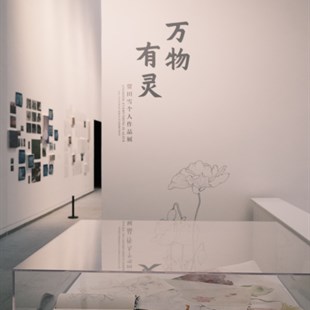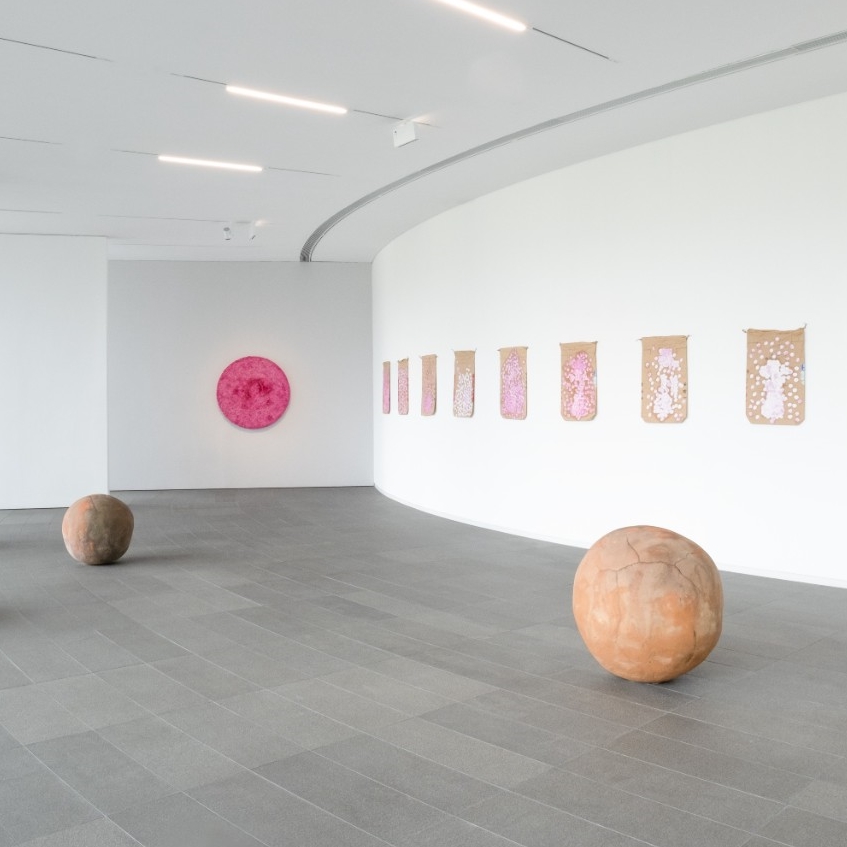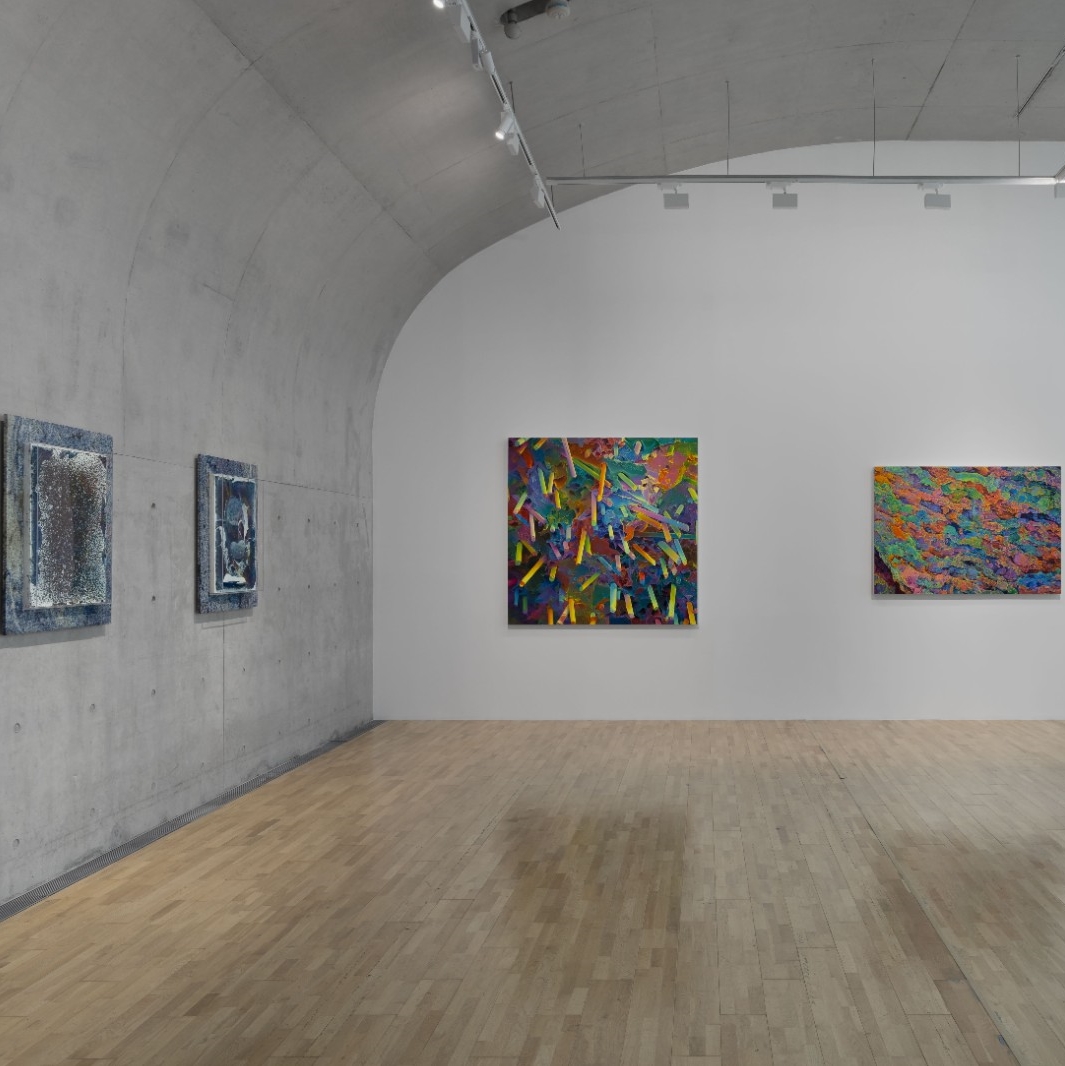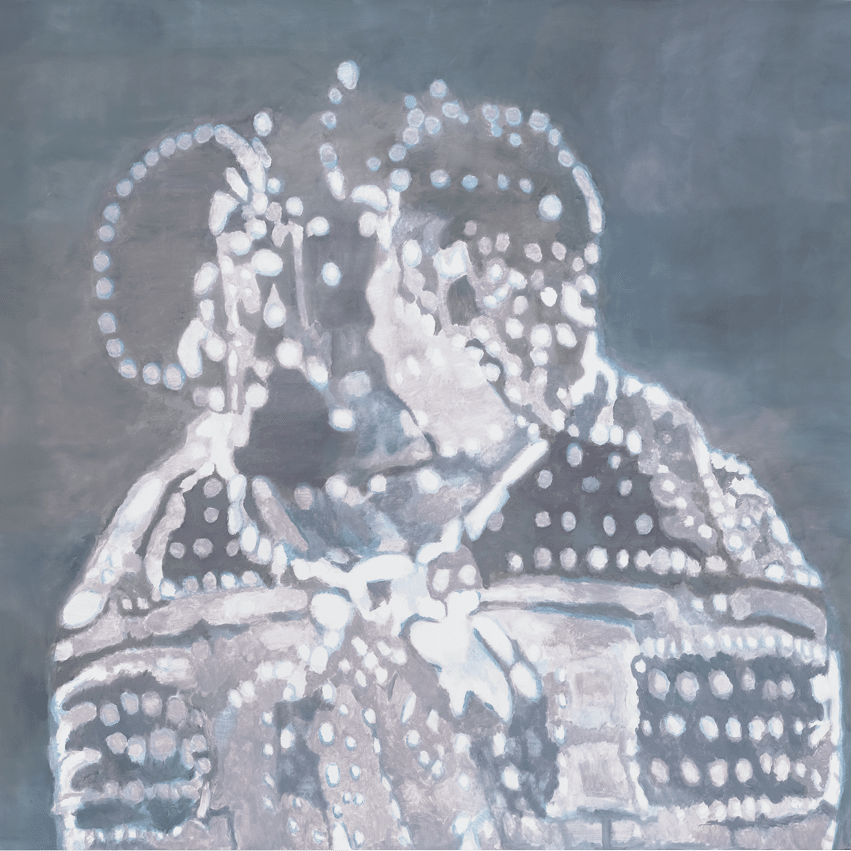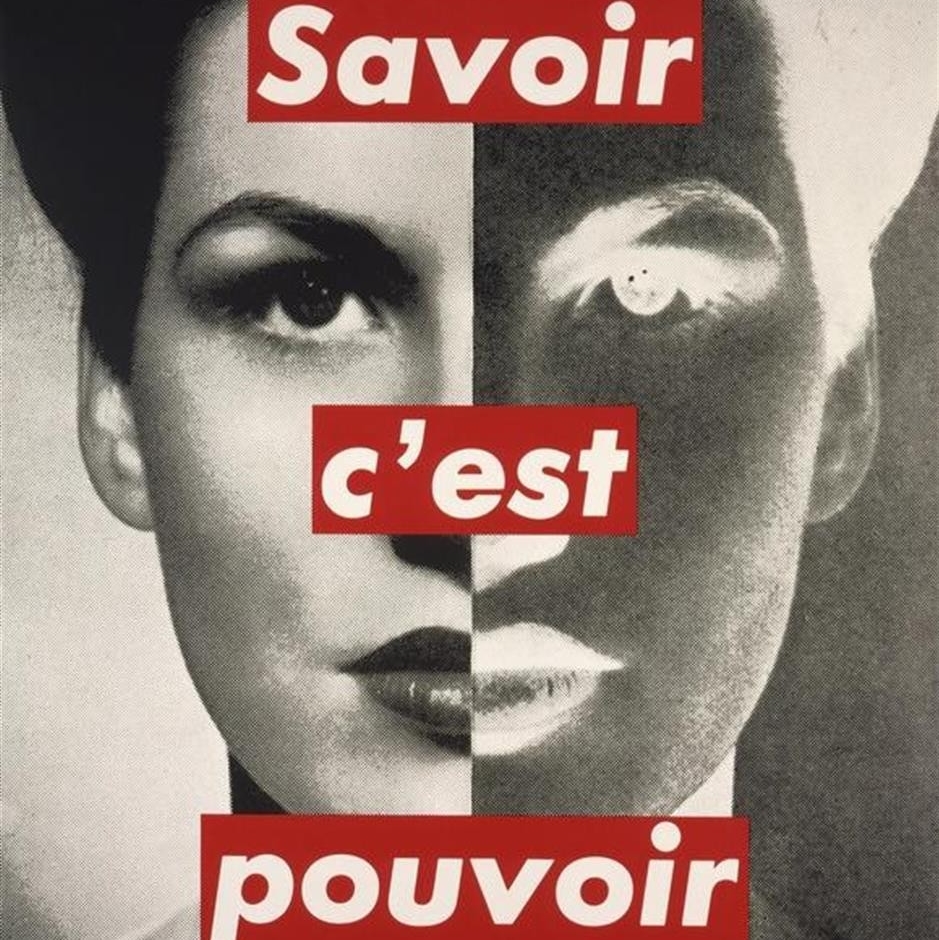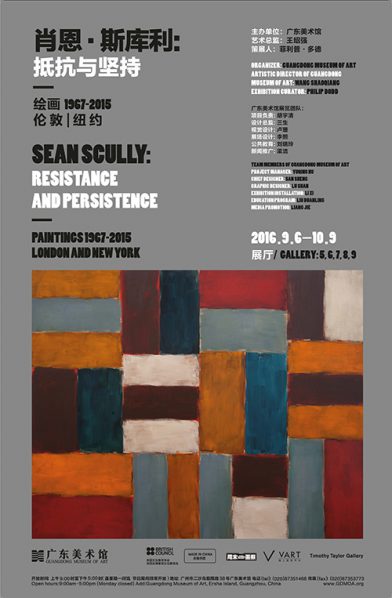
As the most important living master of abstract art, Sean Scully’s second edition of retrospective in China – ‘Sean Scully: Resistance and Persistence. Paintings 1967-2015. London and New York’– will tour to Guangdong Museum of Art from September 6 through October 9, 2016. ‘Sean Scully: Resistance and Persistence’ complements Sean Scully’s extraordinarily successful and ground-breaking exhibition ‘Follow the Heart: the Art of Sean Scully’ which opened at Shanghai Himalayas Art Museum and moved to Beijing Central Academy of Fine Arts Museum (CAFAM) in 2015, about which Global Times said ‘there is a Sean Scully hurricane blowing through China’ and about which the curator Wang Chunchen said ‘it is as important an exhibition as Rauschenberg’s '85 show in China’. The exhibition has been selected by the Beijing News, Artron and Scope as the ‘top 10 yearly exhibitions’, and it wins Sean Scully the ‘International Artist of the Year Award’ presented by Harper’s Bazaar magazine. Major paintings previously exhibited at Sean Scully’s solo show at the Metropolitan Museum of Art in New York; works presented at the recent Venice Biennale; paintings borrowed from important western museums–these are amongst the work that will be exhibited in 'Resistance and Persistence’, and all of the works have never been previously seen in China.
Sean Scully has been praised by the great philosopher and art critic Arthur Danto as ‘an artist whose name belongs to the shortest of short list of major painters of our time’. His works have been collected by over 150 prominent museums and institutes around the world, including the Metropolitan Museum of Art, the Tate Gallery, Centre Georges Pompidou, Museum of Modern Art, the Museum Ludwig (Germany), Victoria and Albert Museum, St. Sophia Museum of Art, the Guggenheim Museum (New York) etc. Sean Scully has been twice the Turner Prize nominee at Tate London in 1989 and 1993.
‘Resistance and Persistence’ is the title not only of this exhibition but also of Sean Scully’s collection of essays published in 2006, which includes his seminal essays on Giorgio Morandi, Van Gogh and Mark Rothko. "Resistance and persistence" is also a summary of the artist's way of working and his art-spirit. As the curator Philip Dodd commented, ‘Across 50 years, the ‘diptych’ (as a discription by Sean Scully himself) has wrestled with inherited languages to make an art that is resistant to orthodoxy (including his own) and persistent – open to including more and more. The words that toll through James Joyce’s last work Finnegans Wake might be an apt summary of Sean Scully’s extraordinary art: ‘Here Comes Everybody’.’ Wang Huangsheng, the director of CAFAM comments: ‘No one doubts that Sean Scully is the most important and most influential abstract artist today. What is distinctive about Sean Scully is that his work is absolutely contemporary, insists on individual consciousness and independent thinking, and is able to explore and express the essential power of the inner consciousness and of the external world in such a way as to make a really valuable contribution to the life and the history of art in a tempestuous time.’ The director of AMNUA Li Xiaoshan commented: ‘Sean Scully’s importance lies not only in his inheritance from the old Modern masters but also in the richness of his own artistic expression. I believe that once again, with his new work coming to China, hosted by our museum, there will be a new surge in debate and discussion, which will contribute towards the richness of our ‘soil’’’.
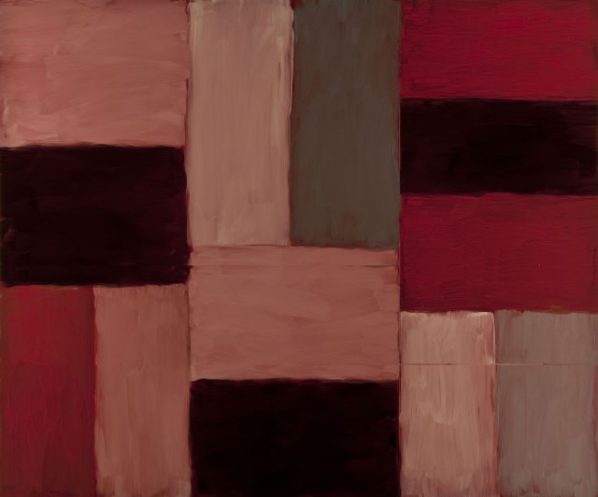
Sean Scully, Red Chamber, 2012; Painting, 279.4x335.3cm
‘Resistance and Persistence’ is a comprehensive review of the artist's career and an intimate personal autobiography, which also provides a rare opportunity for the audience to understand the history of western painting after the war. Many pieces of works are brought from his solo show at the New York Metropolitan Museum of Art and the 2015 Venice Biennale and almost all the works have been exhibited at important international museums. The exhibition will take the viewer from 1967 to 2015 to feel how the artist has contributed to the history of art. In his early work, Scully developed the artistic tradition of Matisse, Mondrian and Rothko, which combined the European tradition of oil painting and the distinctive character of American abstract art. This exhibition will include works from his student period which was collected immediately by public museums in the West through the beautiful minimalist paintings of his early years in New York, through his 80s paintings which redefined abstract art to the late Landline paintings which was shown at the Venice Biennale and about which the London's Financial Times said 'Sean Scully has never looked better than amongst the stones of Venice'. Very notable works include his ten part painting/pastel sequence 'Kind of Red' (2013, which is itself a homage to Miles Davies' seminal album Kind of Blue), the recent 'Four Day' (2015), an extraordinary four panel work which is 279.4 x 542.3cm, as well as the painting and pastel 'Pale Fire' (1998) borrowed from the The Modern Museum, Fort Worth Texas. Also, Sean Scully has selected photographs, books, catalogues and other objects which have mattered to him in his long life and these will also be exhibited in the exhibition.
In ‘A Modernism that turned into a tradition’, the renowned German philosopher and socialist Jürgen Habermas said ‘Scully allows the extraordinary to emerge without heroism from a valued ordinary.’
In ‘Sean Scully: Disorder and order of an abstract’ Sanlian Lifeweek said in 2014 ‘the fiery temperament beneath the calm is probably what he inherited from Rothko and what makes him different from Rothko. ’
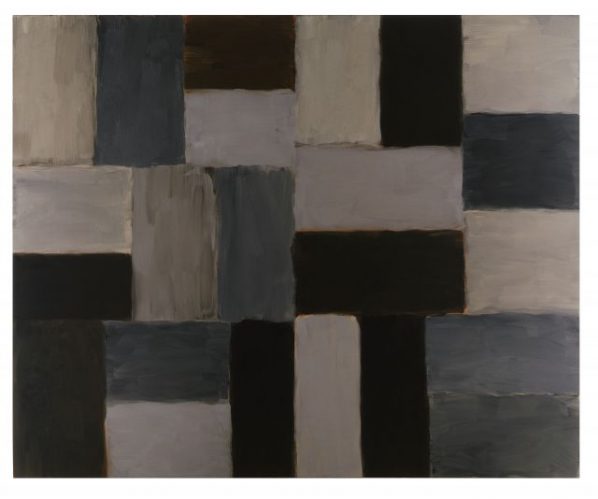
Sean Scully, Wall of LIght_North, 2007; Painting, 279.4x335.5cm
Renowned abstract artist Ding Yi commented: ‘For me Sean Scully is a master of eclecticism. He has perfectly combined two extremes in one painting. On the one hand rationality, on the other hand emotions, philosophy and poetry. The structure of his painting is rational, but the brushstrokes are emotional, captivating and full of life. I think it is very extraordinary.’
The curator Philip Dodd also emphasizes in the exhibition Sean Scully’s connection with the eastern culture. He comments, ‘it is designed to open a conversation. There is no better Western artist to take part in this conversation, since conversation is the heart of his work: conversation with the daily world around him; conversation with the traditions of art in the West, from Velásquez to Matisse, but also with cultural traditions from Asia. Zen has mattered to Sean Scully, as did a book on the Tao and theoretical physics, and for 35 years he practiced karate with all its philosophical resonances.’
Sean’s deep connection with other Irish cultural figure such as with the musician Bono from U2 is well known. Bono has once said that Sean Scully is ‘a Bricklayer of the heart’ and ‘I am lucky enough to live with some of Sean Scully’s work. They are of course very musical, very lyrical…’
The exhibition is curated by Philip Dodd who has recently been named by Art & Auction magazine as one of the ‘top 100 innovators in the art world’. He is a former director of the Institute of Contemporary Arts in London and has curated exhibitions with artists and architects including Damien Hirst, Rem Koolhaus, Zaha Hadid, Yoko Ono and Steve McQueen. He is the author or editor of several books on art, literature and film including ‘Relative Values. What’s art worth?’. The Guardian newspaper commented he is ‘one of the two finest cultural critics of his generation’.
A substantial catalogue will complement the show. Besides the curatorial essay by Philip Dodd, it will also include Sean Scully’s three essays on Giorgio Morandi, Van Gogh and Mark Rothko. The Chinese version of Sean Scully’s collected essays ‘Inner’ (334 pages, 200 essays since late 1960s’) will be published in September and launched at the Guangzhou bookstore Fangsuo. And the translation of Arthur Danto's collected essays on Sean Scully will be published in winter.


